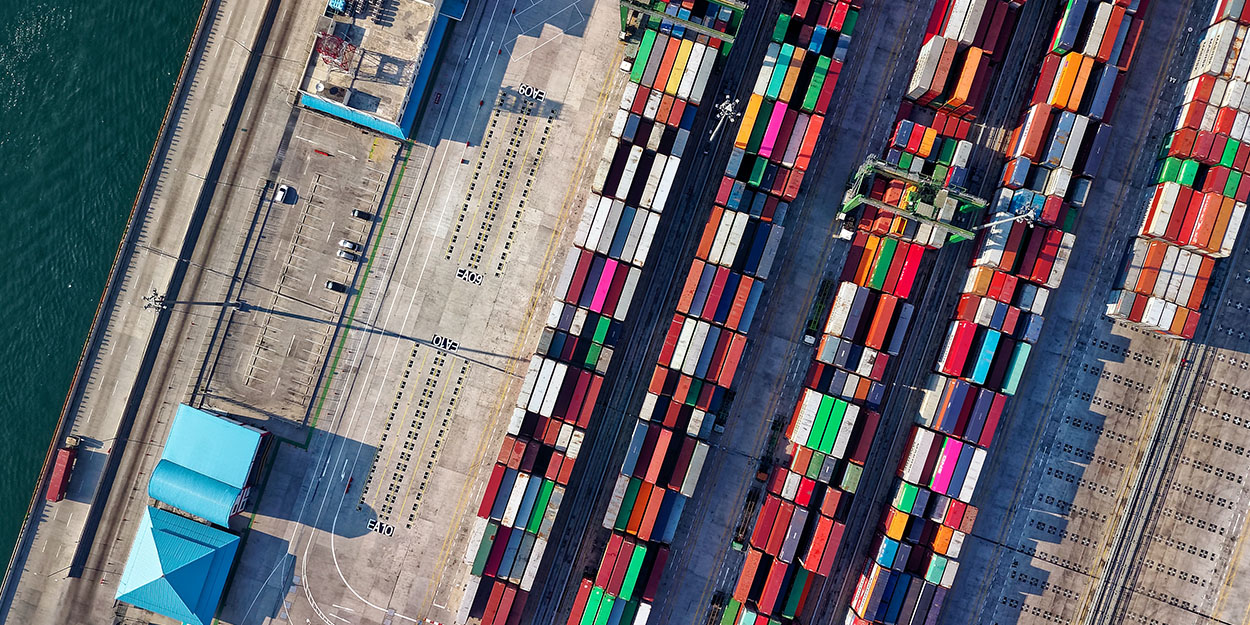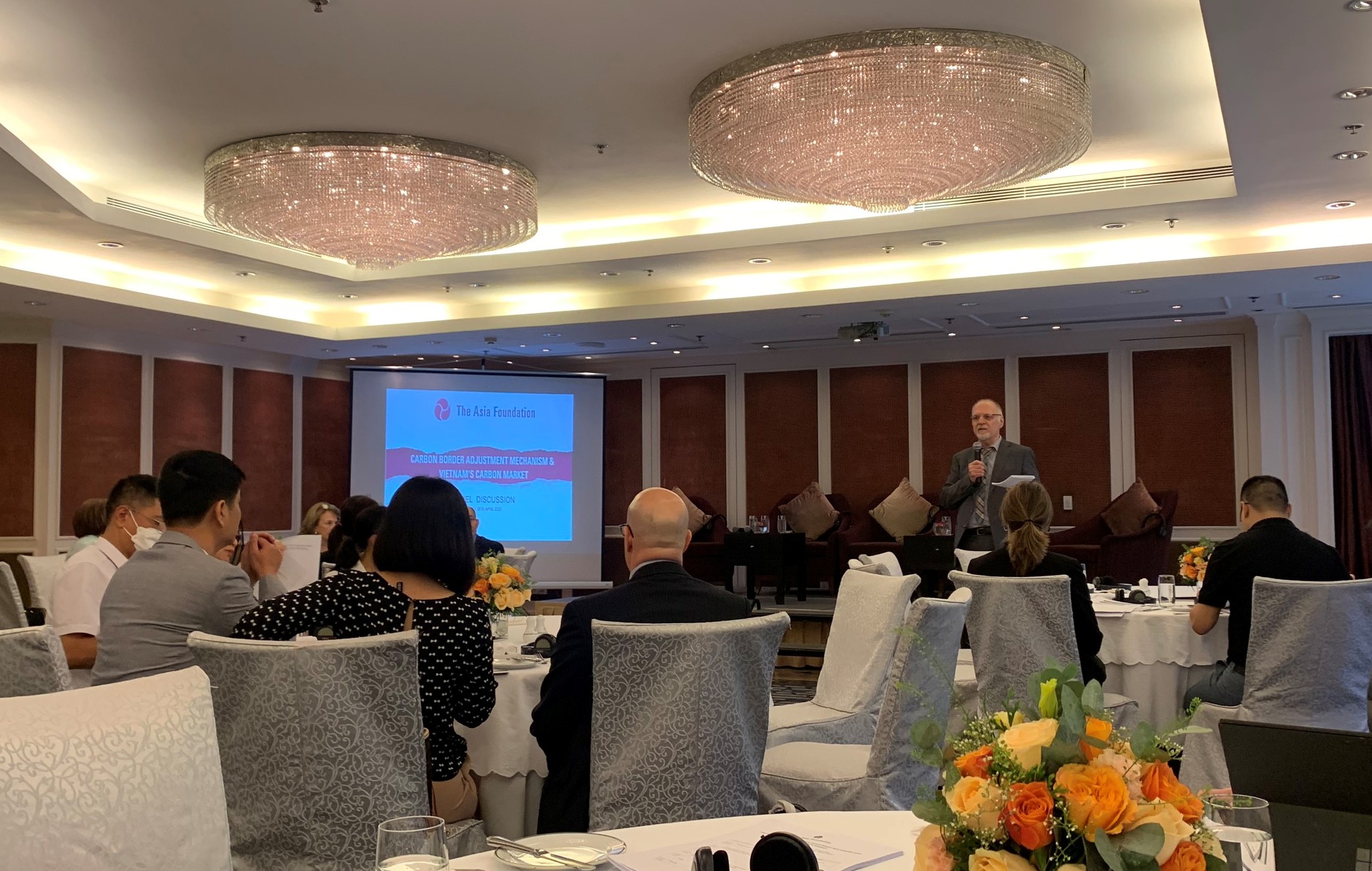In the context of the increasingly severe climate change, the Carbon Border Adjustment Mechanism (CBAM) has become a powerful tool of the European Union (EU) to control carbon emissions from imported products. For businesses and importers accessing the EU market, CBAM holds significant implications and presents notable challenges.

What is CBAM?
CBAM stands for The EU’s Carbon Border Adjustment Mechanism, a mechanism for regulating carbon emissions across borders, falling under the European Green Deal. For businesses and importers accessing the EU market, CBAM not only carries crucial significance but also poses various challenges that need to be overcome.
Why is CBAM important?
To address climate and environmental challenges and reduce carbon leakage, the EU plans to impose carbon taxes on all exported goods based on greenhouse gas intensity in the production process in originating countries. Thus, CBAM is a new environmental policy mechanism within the EU aimed at controlling carbon emissions generated during the production of imported goods. This ensures fairness and uniformity in carbon emission reductions between EU businesses and producers outside the EU.
CBAM will apply to imported goods at high risk of pollution. Goods listed in Annex I, such as iron and steel, cement, fertilizers, aluminum, electricity, and hydrogen, originating from countries and territories outside the EU customs territory, excluding those listed in Annex II.
The exempted countries and territories listed in Annex II are Iceland, Liechtenstein, Norway, and Switzerland. The other five smaller territories are Büsingen, Heligoland, Livigno, Ceuta, and Melilla.
Although the scope remains unchanged until 2026, it is projected to include all sectors covered by the EU Emissions Trading System (ETS) by 2030 (potentially expanding to other products, services, including the value chain and "indirect emissions").
If emissions exceed the standards, businesses will have to purchase "emission certificates."
 Discussion Session on the EU's Carbon Border Adjustment Mechanism (CBAM) and Vietnam's Carbon Market (28/04/2022)
Discussion Session on the EU's Carbon Border Adjustment Mechanism (CBAM) and Vietnam's Carbon Market (28/04/2022)
The CBAM implementation is divided into three stages:
1. Transition Stage
(10/2023)
CBAM reporting obligations start on October 1, 2023. Importers are required to comply with these obligations. Importing entities must submit CBAM reports containing the following information:
Quantity of each type of goods in tons or MWh.
Total integrated emissions within the goods by type.
Any carbon price/tax paid in the country of origin for the integrated emissions within the imported goods, considering refundable amounts (if any).
2. Operational Stage
(01/2026)
During this stage, the gradual removal of the EU ETS (European Union Emissions Trading System) free allowances takes place. This means that previous carbon limitations or exemptions for imported products will be phased out. Instead, importers will need to purchase CBAM certificates to offset the corresponding carbon emissions generated in the production process of these products.
(2027)
The European Commission conducts a comprehensive review of CBAM, assessing its effectiveness, economic impact, and the adaptation of businesses and industries to CBAM measures.
3. Full Operation
(2034)
CBAM is officially deployed and fully operational throughout the EU's territory. The system now applies widely to all imported products from outside the EU. This aims to enhance the mechanism for reducing global carbon emissions in the supply chain and ensures that imported products meet strict environmental standards like products produced within the EU.
Significance for Vietnamese Businesses
As green standards continue to rise, businesses planning to export face the risk of being quickly phased out if they don't improve their production processes. The transformative stage demands time, effort, and financial investment, but seizing the opportunity can help build Vietnam's reputable image in the context of countries moving towards Net Zero, as seen in COP26.
Conversely, CBAM presents opportunities for Vietnam's green industries, such as producing and exporting clean and eco-friendly products. Businesses capable of manufacturing environmentally-friendly goods can leverage CBAM to enhance competitiveness and expand export markets. CBAM offers an avenue for investing in energy-saving technologies and environmentally-friendly production, bolstering competitiveness and business efficiency in the EU's stringent market.
In the near future, for companies and importers engaging with CBAM in the European Union, updating information and continuing to assess the overall impact on business operations is crucial. This goes beyond customs data examination and also affects supply sources and supply chains.
Please contact us
Giant Barb takes great pride in supporting businesses with its comprehensive services, from greenhouse gas audits and risk assessments to market solutions and connections. We firmly believe that harnessing renewable energy is the key to a sustainable future, helping businesses build a green and professional image in the market.